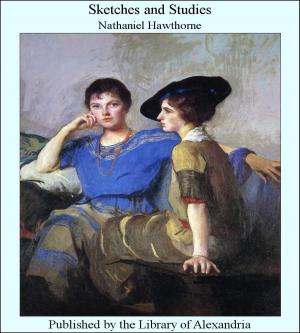John Dewey's Logical Theory
Nonfiction, Religion & Spirituality, New Age, History, Fiction & Literature| Author: | Delton Thomas Howard | ISBN: | 9781465560186 |
| Publisher: | Library of Alexandria | Publication: | July 29, 2009 |
| Imprint: | Library of Alexandria | Language: | English |
| Author: | Delton Thomas Howard |
| ISBN: | 9781465560186 |
| Publisher: | Library of Alexandria |
| Publication: | July 29, 2009 |
| Imprint: | Library of Alexandria |
| Language: | English |
It seems unnecessary to offer an apology for an historical treatment of Professor Dewey's logical theories, since functionalism glories in the genetic method. To be sure, certain more extreme radicals are opposed to a genetic interpretation of the history of human thought, but this is inconsistent. At any rate, the historical method employed in the following study may escape censure by reason of its simple character, for it is little more than a critical review of Professor Dewey's writings in their historical order, with no discussion of influences and connections, and with little insistence upon rigid lines of development. It is proposed to "follow the lead of the subject-matter" as far as possible; to discover what topics interested Professor Dewey, how he dealt with them, and what conclusions he arrived at. This plan has an especial advantage when applied to a body of doctrine which, like Professor Dewey's, does not possess a systematic form of its own, since it avoids the distortion which a more rigid method would be apt to produce. It has not been possible, within the limits of the present study, to take note of all of Professor Dewey's writings, and no reference has been made to some which are of undoubted interest and importance. Among these may be mentioned especially his books and papers on educational topics and a number of his ethical writings. Attention has been devoted almost exclusively to those writings which have some important bearing upon his logical theory. The division into chapters is partly arbitrary, although the periods indicated are quite clearly marked by the different directions which Professor Dewey's interests took from time to time. It will be seen that there is considerable chance for error in distinguishing between the important and the unimportant, and in selecting the essays which lie in the natural line of the author's development. But, valeat quantum, as William James would say. The criticisms and comments which have been made from time to time, as seemed appropriate, may be considered pertinent or irrelevant according to the views of the reader. It is hoped that they are not entirely aside from the mark, and that they do not interfere with a fair presentation of the author's views. The last chapter is devoted to a direct criticism of Professor Dewey's functionalism, with some comments on the general nature of philosophical method. Since this thesis was written, Professor Dewey has published two or three books and numerous articles, which are perhaps more important than any of his previous writings. The volume of Essays in Experimental Logic (1916) is a distinct advance upon The Influence of Darwin on Philosophy and Other Essays, published six years earlier. Most of these essays, however, are considered here in their original form, and the new material, while interesting, presents no vital change of standpoint. It might be well to call attention to the excellent introductory essay which Professor Dewey has provided for this new volume. Some mention might also be made of the volume of essays by eight representative pragmatists, which appeared last year (1917) under the title, Creative Intelligence. My comments on Professor Dewey's contribution to the volume have been printed elsewhere.[1] It has not seemed necessary, in the absence of significant developments, to extend the thesis beyond its original limits, and it goes to press, therefore, substantially as written two years ago
It seems unnecessary to offer an apology for an historical treatment of Professor Dewey's logical theories, since functionalism glories in the genetic method. To be sure, certain more extreme radicals are opposed to a genetic interpretation of the history of human thought, but this is inconsistent. At any rate, the historical method employed in the following study may escape censure by reason of its simple character, for it is little more than a critical review of Professor Dewey's writings in their historical order, with no discussion of influences and connections, and with little insistence upon rigid lines of development. It is proposed to "follow the lead of the subject-matter" as far as possible; to discover what topics interested Professor Dewey, how he dealt with them, and what conclusions he arrived at. This plan has an especial advantage when applied to a body of doctrine which, like Professor Dewey's, does not possess a systematic form of its own, since it avoids the distortion which a more rigid method would be apt to produce. It has not been possible, within the limits of the present study, to take note of all of Professor Dewey's writings, and no reference has been made to some which are of undoubted interest and importance. Among these may be mentioned especially his books and papers on educational topics and a number of his ethical writings. Attention has been devoted almost exclusively to those writings which have some important bearing upon his logical theory. The division into chapters is partly arbitrary, although the periods indicated are quite clearly marked by the different directions which Professor Dewey's interests took from time to time. It will be seen that there is considerable chance for error in distinguishing between the important and the unimportant, and in selecting the essays which lie in the natural line of the author's development. But, valeat quantum, as William James would say. The criticisms and comments which have been made from time to time, as seemed appropriate, may be considered pertinent or irrelevant according to the views of the reader. It is hoped that they are not entirely aside from the mark, and that they do not interfere with a fair presentation of the author's views. The last chapter is devoted to a direct criticism of Professor Dewey's functionalism, with some comments on the general nature of philosophical method. Since this thesis was written, Professor Dewey has published two or three books and numerous articles, which are perhaps more important than any of his previous writings. The volume of Essays in Experimental Logic (1916) is a distinct advance upon The Influence of Darwin on Philosophy and Other Essays, published six years earlier. Most of these essays, however, are considered here in their original form, and the new material, while interesting, presents no vital change of standpoint. It might be well to call attention to the excellent introductory essay which Professor Dewey has provided for this new volume. Some mention might also be made of the volume of essays by eight representative pragmatists, which appeared last year (1917) under the title, Creative Intelligence. My comments on Professor Dewey's contribution to the volume have been printed elsewhere.[1] It has not seemed necessary, in the absence of significant developments, to extend the thesis beyond its original limits, and it goes to press, therefore, substantially as written two years ago















